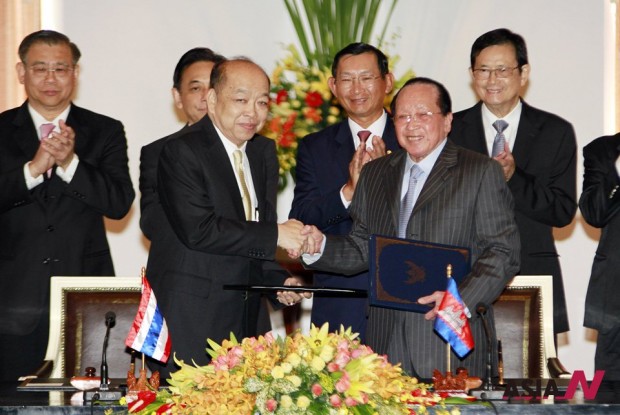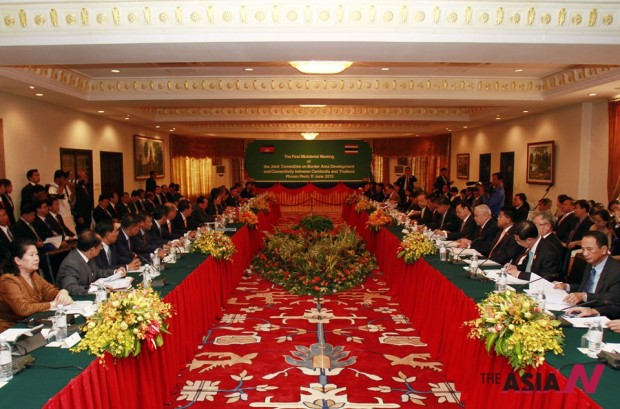Cambodia-Thailand agree to establish two special economic zones

Cambodia and Thailand on Tuesday agreed to work together towards establishing two special economic zones in border areas in order to boost trade and investment and improve livelihoods of the peoples along the border of the two countries.
“We agreed to set up special economic zones – one is in Banteay Meanchey province bordering Thailand’s Sa Kaeo province, and the other is in Koh Kong province bordering Thailand’s eastern Trat province,” Cambodian deputy prime minister and foreign minister Hor Namhong said at a join press briefing after the first meeting of the Joint Committee on Border Area Development and Connectivity between Cambodia and Thailand.
“The special economic zones will be very important to strengthen and expand economic and trade relations between the two neighbors,” he said.
Both sides also agreed to push for the construction of a 1,800 megawatt coal-fired power plant in Koh Kong province.
“Moreover, we agreed to teach Thai and Khmer languages to peoples along the border in order to enable Thais speak Khmer and Khmers speak Thai, so they will be able to work in the special economic zones and the power plant in the future,” he said.
Thai deputy prime minister and foreign minister Surapong Tovichakchaikul said both sides tasked a joint working group to discuss details towards the establishment of the two special economic zones.

Both sides also agreed to develop roads and railways and to set up 4 new international checkpoints in four provinces along the border.
In addition, they agreed to increase cooperation in tourism, health, and anti-cross border crimes.
“With our concerted endeavor, I believe that we will be able to turn our border as a border of peace, friendship and prosperity,” Surapong Tovichakchaikul in the joint press briefing. “The livelihoods of our two peoples along the border will be better.”
At the end of the meeting, the two top diplomats signed a memorandum of understanding on contract farming.
“The deal is very important for Cambodian people along the border. It will encourage Cambodian farmers to produce more agricultural products for Thai markets,” Hor Namhong said.
The first meeting was held under the initiative by Thai Prime Minister Yingluck Shinawatra and Cambodian Prime Minister Hun Sen to boost bilateral relations and cooperation.
It was also attended by the two countries’ ministers of agriculture, defense, transport, commerce and health, as well as governors of provinces along the border of the two countries.
The Cambodian government of Prime Minister Hun Sen and the Thai government of Prime Minister Yingluck Shinawatra have been working hard to ameliorate the bilateral tie, which was murky during the rule of former Thai Prime Minister Abhisit Vejjajiva due to deadly border clashes.
Border dispute between the two neighbors over the 4.6 square kilometers of land next to Cambodia’s Preah Vihear Temple remains unsolved.
The World Court is expected to issue a decision on who owns the disputed land around the temple later this year. <Xinhua/NEWSis>




